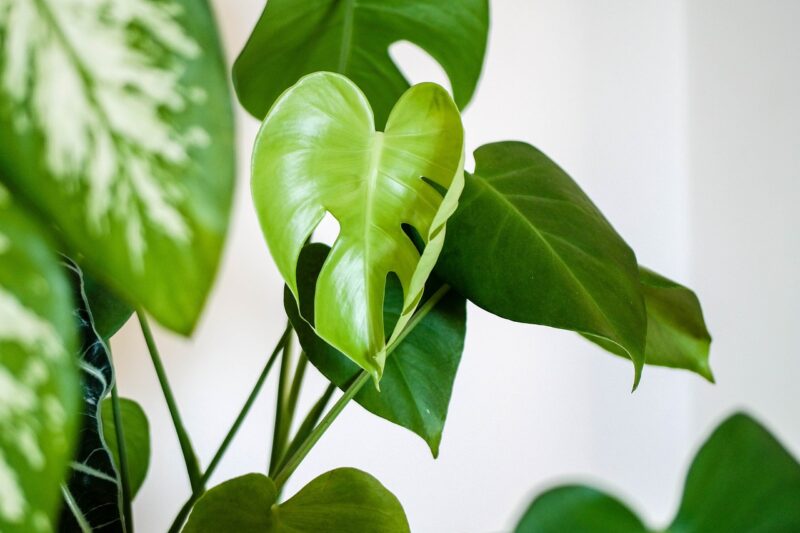The Rise of ‘Plant Parenting’ and Why People Are Treating Plants Like Pets
November 13, 2024

In recent years, a remarkable trend has emerged that intertwines the care of the living world with the nurturing affection traditionally reserved for pets. As people spend more time at home, particularly due to the pandemic, the concept of ‘plant parenting’ has seen a significant rise. This phenomenon encapsulates how individuals have taken their love for plants to new heights, nurturing their greens as they would a pet.
1. What is Plant Parenting?
Plant parenting refers to the enthusiastic and often emotional connection people form with their houseplants. It is characterized by treating plants not merely as decorations but as cherished living entities that require support, care, and even companionship. Plant parents invest a considerable amount of time and resources into their green companions, ensuring they thrive and flourish in their homes.
The rise of social media groups and online communities has propelled this trend forward, creating a space for individuals to share tips, experiences, and even the simple joy of their plant parenting journeys. These platforms have transformed the way people interact with their plants and have helped demystify plant care for beginners.
2. The Science Behind Plant Parenting: Why We Connect with Plants
Several psychological and physiological factors contribute to the human inclination towards plants:
- Biophilia: This term, introduced by biologist Edward O. Wilson, refers to the innate connection humans have with nature and living systems. Engaging with plants can fulfill this basic need, providing happiness and a sense of well-being.
- Mental Health Benefits: Numerous studies have demonstrated that interacting with plants can significantly reduce stress and anxiety. Caring for plants can serve as a form of therapy, allowing people to escape daily pressures and cultivate patience and care.
- Sense of Accomplishment: Watching a plant grow and thrive due to one’s care can instill a sense of responsibility and achievement, boosting self-esteem and personal satisfaction.
These factors reinforce the nurturing behavior seen in plant parents, drawing parallels to traditional pet ownership.
3. The Types of Plants People Are Adopting as ‘Pets’
While virtually any plant can become a companion in the journey of plant parenting, several species have gained particular popularity:
- Monstera Deliciosa: Known for its unique split leaves, this tropical plant has become a favorite among millennials for its striking look and relatively easy care requirements.
- Fiddle Leaf Fig: This plant has reached iconic status in home decor due to its dramatic foliage, becoming a status symbol amongst plant parents.
- Snake Plant: With its upright leaves and low maintenance needs, the Snake Plant is often recommended for beginners, making it an accessible option for those new to plant parenting.
- Pothos: This hardy vine is perfect for trailing arrangements in hanging pots, symbolizing growth and flexibility, which many plant parents find appealing.
These plants not only beautify spaces but also become talk points in social contexts, as plant parents bond over their shared interests.
4. The Community Surrounding Plant Parenting
Social media has been instrumental in the rise of this trend. Platforms like Instagram, Pinterest, and TikTok are overflowing with aesthetic plant photos, care tips, and personal stories from plant parents.
Many participants engage in:
- Social Media Challenges: These challenges encourage plant parents to showcase their collections, promote plant swaps, and even share artistic displays of their beloved plants.
- Online Workshops and Tutorials: Numerous influencers host educational sessions on plant care, helping enthusiasts expand their knowledge and confidence.
- Community Groups: Local and online communities focus on everything from rare species trading to outdoor meet-ups, allowing plant parents to connect and share their experiences.
The existence of such a supportive ecosystem addresses the risks of isolation that many people face, further promoting the idea of caring for plants as a fulfilling, rewarding pursuit.
5. The Economic Impact of Plant Parenting
The plant parenting trend isn’t just a cultural phenomenon; it has tangible economic implications as well. The houseplant industry has witnessed a surge in demand, prompting:
- Increased Sales in Nurseries: More people are flocking to local nurseries or ordering online, leading to a resurgence in the business of growing and selling plants.
- Emerging Plant Care Products: A whole new range of plant care products, from fertilizers to self-watering pots, has become available to meet the needs of this burgeoning market.
- Plant-Related Services: Services like plant consultancy, styling for homes, and potting workshops are gaining popularity, providing new career avenues for horticulturists and enthusiasts alike.
Overall, plant parenting is forging a path for economic growth within the horticultural sector, reshaping how society views and interacts with plants.
6. The Challenges of Plant Parenting
Despite its numerous benefits, the journey of a plant parent is not without challenges. New plant parents can find themselves facing:
- Plant Diseases: Unfamiliarity with common plant ailments can lead to rapid deterioration of health if not recognized and treated early.
- Overwatering or Underwatering: Many aspiring plant parents struggle with the delicate balance of watering, sometimes leading to root rot or dehydration.
- Pests: Infestations can occur, requiring timely intervention with safe pest control solutions to preserve the plant’s health.
These challenges can act as valuable learning experiences, helping plant parents grow not only their plants but also their skills and knowledge. Ultimately, overcoming these hurdles strengthens their connection to their leafy companions.
Conclusion: The Future of Plant Parenting
As society continues to grapple with urbanization and the impacts of climate change, the rise of plant parenting presents a positive step towards nurturing both the environment and our mental well-being. By treating plants as beloved companions, individuals cultivate a deeper appreciation for nature and its complexities.
The future of plant parenting seems bright. With community support, educational resources, and psychological benefits, it is likely to evolve even further — reinforcing the notion that in today’s world, plants may indeed become the next beloved family members.








